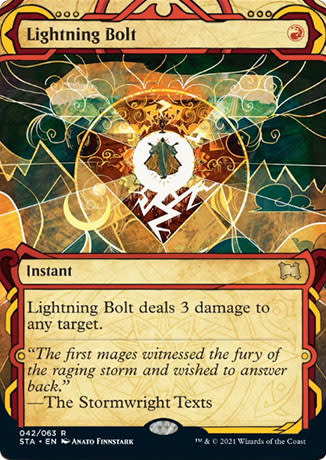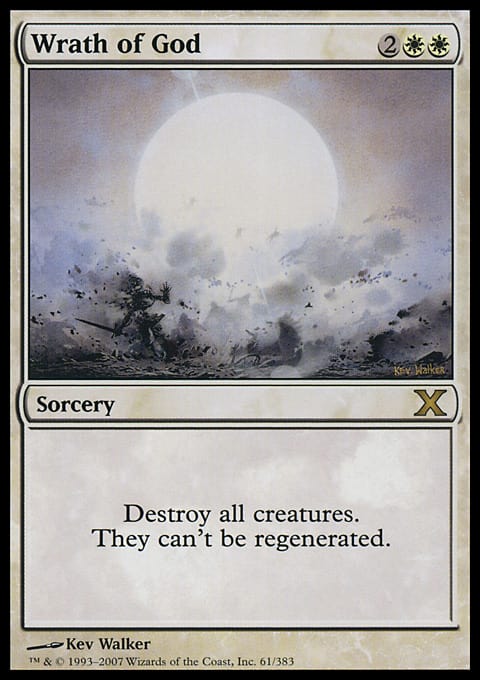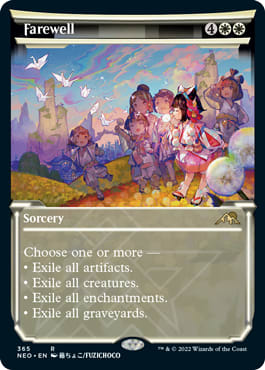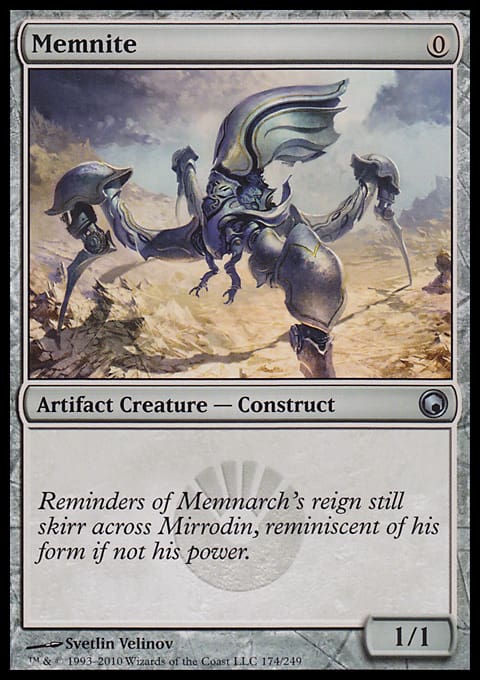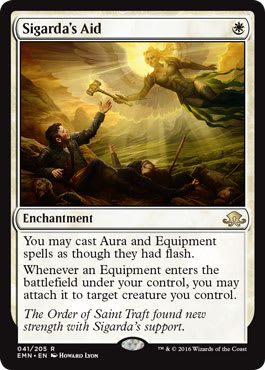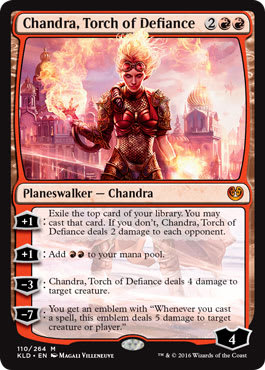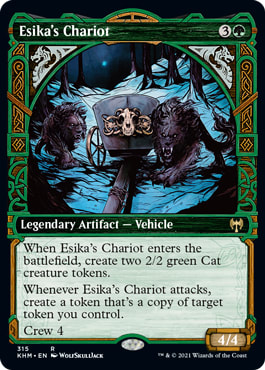Magic: the Gathering is one of the greatest games ever conceived.
There's a very good reason it has endured 30 strong years, producing tens of thousands of unique game pieces while having literally dozens of different ways to play the game, anywhere from a school lunchroom table all the way to the World Championship played in some exotic locale for hundreds of thousands of dollars. The game's complexity and ever evolving nature make it a puzzle that is unsolvable, a moving target that is impossible not to want to chase.
However, Magic isn't the only game out there.
Because Magic is so deep and rich, it can be easy to get lost sometimes and forget that other games do in fact exist! This can lead to an echo chamber effect, which can stunt your growth as a player (and a person, but that's a topic for another day).
Today I want to look at some other games that I enjoy and how the skills in those games are transferable to Magic in unique and somewhat unexpected ways.
Poker
As the only other card game we're going to talk about today, the connections from Poker to Magic may seem somewhat obvious. Magic is often described as "chess meets poker," and the games share the concept of hidden information as a major factor of the game. There's also a large amount of crossover among high level players, with many Magic pros making the jump to poker for its larger prize pools and more lucrative lifestyle.

Poker and Magic have many strategic concepts in common, ranging from leveraging hidden information into bluffs to things like mental game and tilt control. However, the one we will be discussing today is the concept of a "range."
In poker, even the best pros rarely know exactly what a player has. In movies or TV you see the hot shot poker player call out that someone else has a pair of sevens or busted straight draw, but that's not how poker strategy works. High level poker players don't try to figure out exactly what their opponents have, but rather use the information they gather from their opponent's plays to figure out the range of possible hands they could have, and then constantly update and shrink this range as they get more information throughout the hand.
Formulating a range is all about picking up context clues based on the actions your opponent takes in a game.
Take a game of Modern where your opponent pays two life to play a Steam Vents untapped turn one and just says go. They wouldn't do this without a purpose, so immediately you have to open up a range of possible cards for them. This is going to include popularly played cards like Lightning Bolt or Unholy Heat, or maybe a cantrip like Consider, with something like Spell Pierce or Spell Snare possible but less likely. Now you have established a range of possible cards for them to have, and will need to keep updating that range throughout the game.
If you don't present them a target for Lightning Bolt and they don't cast anything and just go into their turn two, then a removal spell is likely and you can cross the cantrips off the list. If they do cast a Consider on your end step, then for the moment that answers that question. They could still have a Lightning Bolt or removal spell, but it's not a sure thing as if they did nothing.
This happens a lot in Limited too and you can draw some pretty wild conclusions.
People are always very surprised when I call out a mass removal spell in my Bronze To Mythic draft series, as calling out a rare in a draft game feels very unlikely. However, the reality is that often because casting a sweeper is such an odd thing to do in a game of Limited, the context clues add up and it becomes hard to be anything else.
Imagine you're playing against a Green/White draft deck in a Kamigawa Neon Dynasty Draft. They've got a good blocker in play like Webspinner Cuff but nothing else, while you are building a board of three decent creatures. On their turn five they play a fifth land and say go with five untapped mana and five cards in their hand.
This is weird!
It's extremely unlikely that they have five uncastable cards in hand, so something is clearly up here. They aren't blue so they can't have Counterspell of some kind and there are very few flash creatures in the entire format. Our opponent wouldn't waste an entire turn unless they had a good reason to, but something like Farewell makes a lot of sense. They're holding back the other creatures they don't want to sweep in hand and trying to get us to over extend. However there are other things they could have, so we construct our range:
Farewell is a big one because of the huge effect it has on the game, but some sort of instant speed removal is possible as well. Kyodai, Soul of Kamigawa is a possible flash creature, and of course there is a chance that they just have an awful hand lands or very conditional cards, but in that case you're already in good shape.
Once you've crafted your range, you need to decide how you want to proceed into it, making the play that seems best given your opponent's option. So say you attack with everything, play your worst creature, and just say go. At the end of your turn, they cast Repel the Vile on one of your creatures.
Now the question is answered and you can update your range; there's still a chance they have something like Farewell, but it's much less likely because Repel the Vile made their play last turn make sense.
This is how high level players think about both Poker and Magic, and if you want to up your game you need to start thinking like this too.
Starcraft 2
Starcraft 2, one of the original esports, is a classic real time strategy game that is based around a war for supremacy between three very different races. The game is known for its incredibly high skill ceiling as well as impeccable balance, as like the different colors of Magic each race is mechanically very unique. You choose your race and face off against an opponent in a game of strategy and attrition as you build bases and army units to attack and defend.

As Starcraft 2 is a real time game, it differs from Magic in many ways. Having an extremely high APM (actions per minute) is a requirement for pro level play, as you must be able to execute everything you are doing with blazing speed. In this way, Starcraft 2 almost seems to have more in common with a sport like Basketball or Hockey than a video game, as muscle memory and reaction time play a huge role. However, Starcraft 2 also has a supreme amount of strategic depth as well.
Understanding everything your race is capable of as well as your opponent's race is very similar to a metagame in Magic. There are many different strategies each race can employ and just like Magic, a game of Zerg vs Zerg is going to look very different than a game of Protoss vs Terren. This is just like how a match of UW Control vs Mono Red Aggro is going to look very different from a match of UW Control vs Abzan Midrange.
Because of this, one of the most important things in Starcraft is the value of information.
Just like Magic has a metagame of different top decks and strategies for any given format, Starcraft 2 has a metagame of build orders and counter builds. Openings in Starcraft are similar to openings in Chess, where you have a set plan going in that you try to stick to and then react accordingly to your action. As such, being able to quickly and effectively figure out what your opponent is doing, and thus be able to prepare an appropriate counter, is one of the most important aspects of being a top Starcraft 2 player. Serral, one of the best players in the world for many years, is notoriously excellent at gathering information in a game, as well as using it to his advantage.
So how does this correlate to Magic?
Say you're playing a game of Modern and your opponent has no companion. They play turn one Plains, Memnite, Sigarda's Aid. Now, most Hammertime decks play Lurrus of the Dream Den as their companion, so it's your job to take this information and figure out what is different. Maybe they're playing a bigger Stoneforge Mystic package with Batterskull, or they're splashing blue for Teferi, Time Raveler. Either way, their list is going to be different from a "normal" Hammertime list and you're going to need to be able to adjust your strategy accordingly.
When it comes down to it, this skill is gained by experience and study. Playing lots of games, as well as researching decklists and keeping up to date on the metagame. The worst thing that can happen to you is to be playing an important match and be surprised by what your opponent is doing.
Chess
Chess is of course the other half of the "Poker meets Chess" description, while also being one of the most classic games of all time. While Chess has similar strategy components to Magic, it is a fundamentally different game because there is no randomness or hidden information. Each player starts with the same pieces every game, everything that happens is visible to each player, and there are no surprises.
So what's the crossover with Magic beyond just being a general strategy game?
One word - "tempo."

"In this example, white moves Knight to C3 to both threaten black's queen as well as develop their board. Black is stuck having to move the queen to safety and not develop."
In chess, each player is locked to only making one move a turn. As such, what you are able to do with that move each turn is hugely important. Tempo is gained in chess when your move accomplishes multiple tasks at once. For example, if you move your pawn up to a space to develop your board, while also threatening one of their pieces, now you've essentially accomplished two tasks with only one move.
This is a large part of why planeswalkers are so good in modern day Magic, and why cards that have an immediate large impact on the board are paramount.
Magic these days is all about the board, which makes cards that can both affect the board as well as present a threat so important. When you cast Chandra, Torch of Defiance and use the -3 to kill your opponent's creature, you've both eliminated an opponent's threat while also presenting one of your own. The same goes for a card like Esika's Chariot, which puts a huge threat on the board as well as a pair of 2/2s that are good both on offense and defense. This is also why cards that can't block when you play them or take a turn to actually do something can be dubious.
This lesson in tempo goes for both your card evaluation for deckbuilding as well as the actual gameplay. Anytime you can make a play that accomplishes multiple tasks at once it is a huge win for you.
Sports
This of course can go beyond games and to sports as well.
For a sport like hockey, it can be something like putting your head down and playing hard no matter what the score of the game is. Hockey players are taught to always play hard from whistle to whistle, regardless of if the game is close or way out of hand. This correlates well to tournament Magic, where you should always just be putting your all into winning any given match, whether you're playing a big match for top 8 or slumming it out at 9-4 just trying to make min cash.
Golf is another good one, as golf is a game of cleaning up your mistakes. A mistake in golf means a bad shot, which often means your next shot is going to be from the middle of the woods or a nasty sand trap. However, it doesn't really matter how you got there, it matters that you need to make the best shot possible to get out. The same is true in Magic when you inevitably make a mistake. Having the ability to reevaluate the game from the point of the mistake and then formulate the best plan from that point is an extremely important skill to have. Everyone makes mistakes, great players work their way out of them.
Transferable Skills
We could go on forever, but the main idea is the same- Magic is a complex game and it's awesome that its depth translates to many different games and other things in life.
By looking at Magic through these different lenses we can both learn more about games in general, as well as gain a fresh understanding of Magic itself. Don't be surprised if you end up referring to a sports team making substitutions as "sideboarding" or saying you've "got a bad matchup" against your math test.
There's a reason that Magic has been such a huge part of so many people's life for so long!















